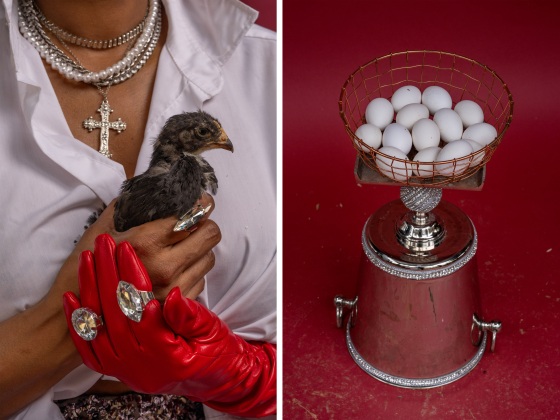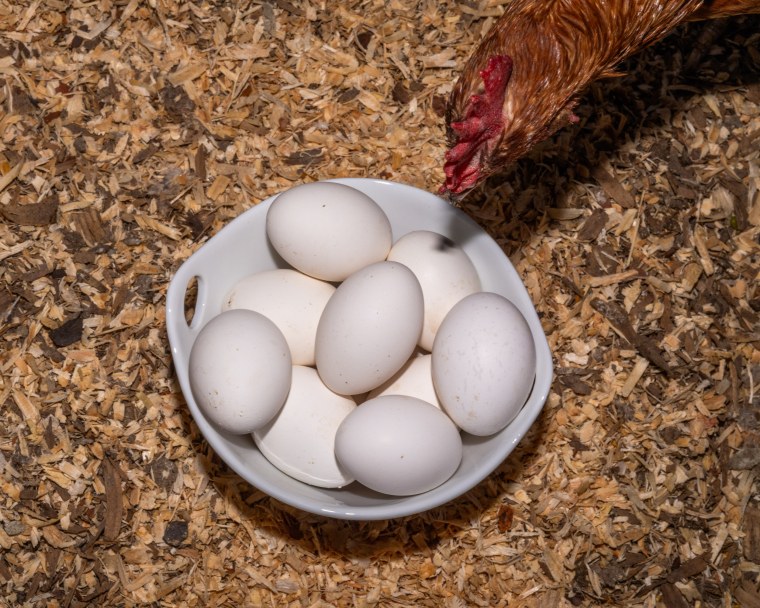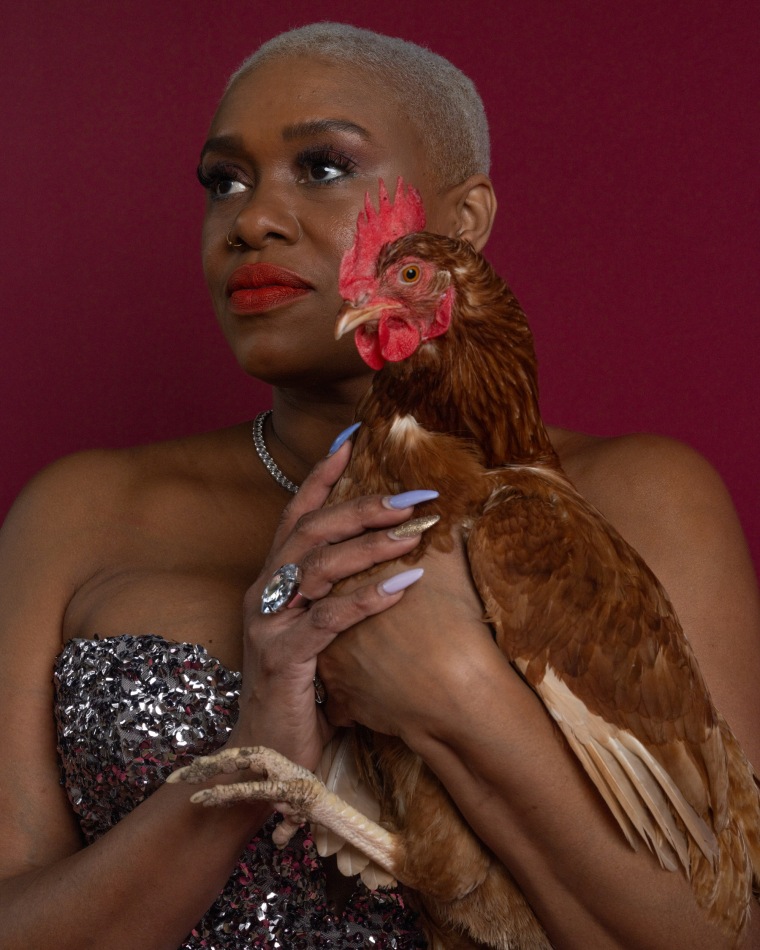get these nets
Veteran
Neighbors flock to backyard chicken coops for fresher and cheaper eggs
People raising chickens in their backyards find their eggs are suddenly in high demand.
Naeema Finley at home with her baby chick "Jasmine Crockett" in Acworth, Ga.,
March 12, 2025
For years, Naeema Finley noticed other people’s expressions when she told them she was raising chickens in her backyard. A Las Vegas native who lives in Atlanta, Finley brandishes elaborate fingernails and often wears stilettos — not your typical chicken coop attire.
“It was always, like, ‘Oh, really?’ Not sure if they believed me or not, but they were definitely surprised,” she said. “I know I don’t look the part.”
Finley started in 2020 with four chickens in a custom-made coop in her backyard. Five years later, Finley today raises 17 chickens in her yard, producing about 5,100 fresh eggs a year.

Acquiring chickens was initially a move to simply avoid mass-produced eggs for the benefit of her health. “I didn’t expect it would grow like this when I first started,” Finley said.
Now, she has a side business that has the potential for more growth as the demand for backyard-raised eggs has boomed in the last several months due to high prices at supermarkets and grocery stores. She and countless others with coops are seizing the moment, as the spread of bird flu has led to the deaths or slaughter of 13 million chickens. Independent chicken coop owners in Georgia, Florida, California and Massachusetts told NBC News that they are providing more cost-efficient and reliable alternatives as compared to what’s offered at grocery stores.
Finley, 47, sells her eggs for $3 to $9 per dozen, and no one balks at the prices.

“It is an involved process to do it the right way,” Finley said. “But it’s worth it.”
Kathy Whitman, a Colorado State University Extension veterinary specialist, said the quest for fresh eggs should not preclude taking seriously the danger of the avian or bird flu, which can also hit in backyard coops
“It’s a big threat,” Whitman said, adding that vets are “pretty regularly” seeing the disease in undomesticated birds. “It’s endemic” in wild birds, she said.
“Anytime you have your own backyard poultry that potentially has exposure to those wild birds, it’s always going to be a risk.”
Keeping chickens in protected enclosures is important, Whitman said, especially if the backyard coop is near waterways, where wild birds congregate. It’s also critical, Whitman said, that owners make sure to not track wild bird fecal matter into the coops.
“All of these large operations that have had bird flu outbreaks have stringent biosecurity protocols and have invested a lot of money in safety, and still, the bug is able to get in on occasion,” she said. “So, the backyard coop owner has to be especially diligent — and consult with a veterinarian with any concerns.”
In addition to the convenience of producing one’s own eggs, Finley said mass-produced eggs found at grocery stores generally lack the personal care she and other backyard coop owners can provide. Coop owners said their eggs are just fresher — and desired.
Rest of the article

Neighbors flock to backyard chicken coops for fresher and cheaper eggs
People raising chickens in their backyards find their eggs are suddenly in high demand.



